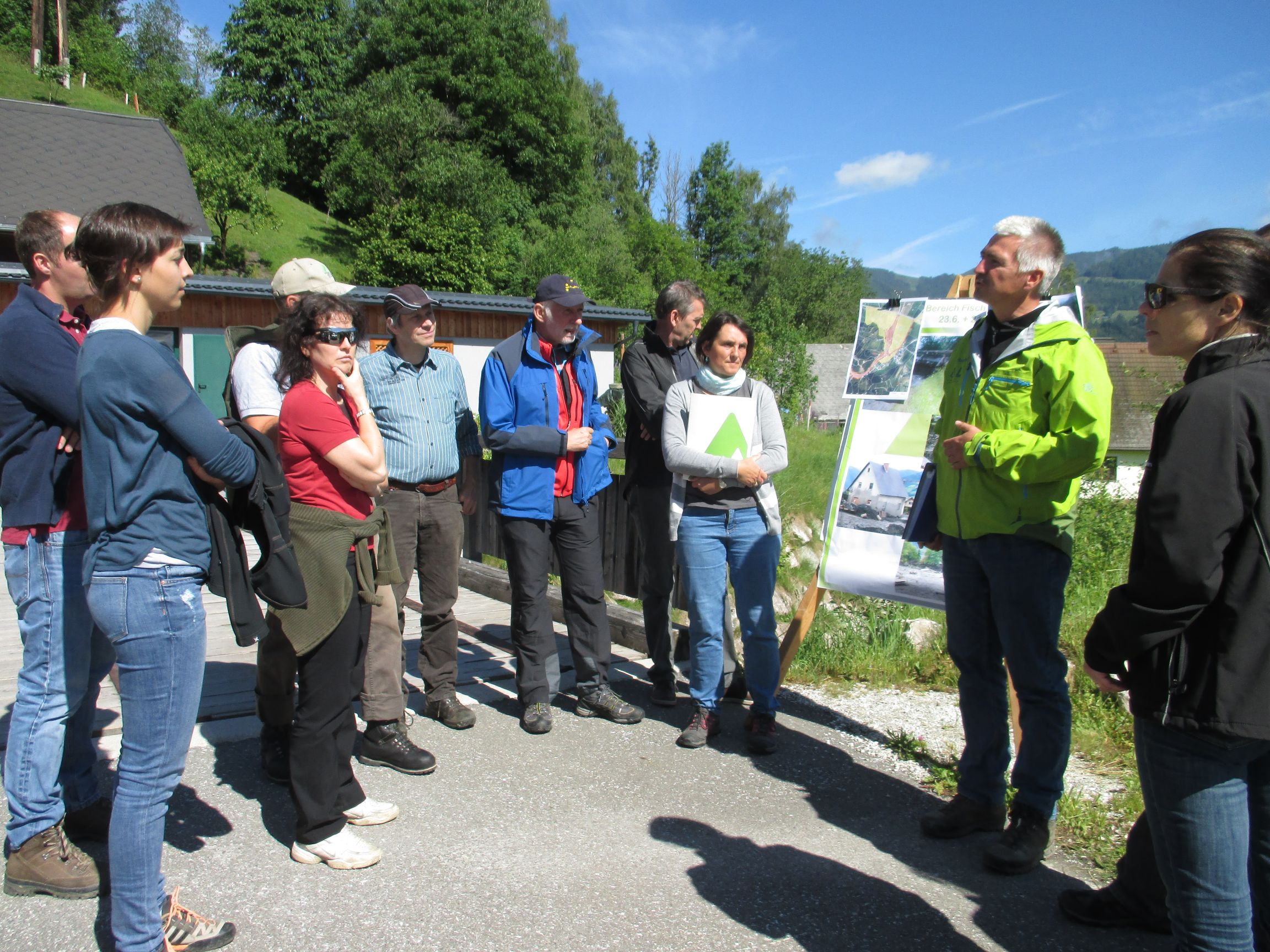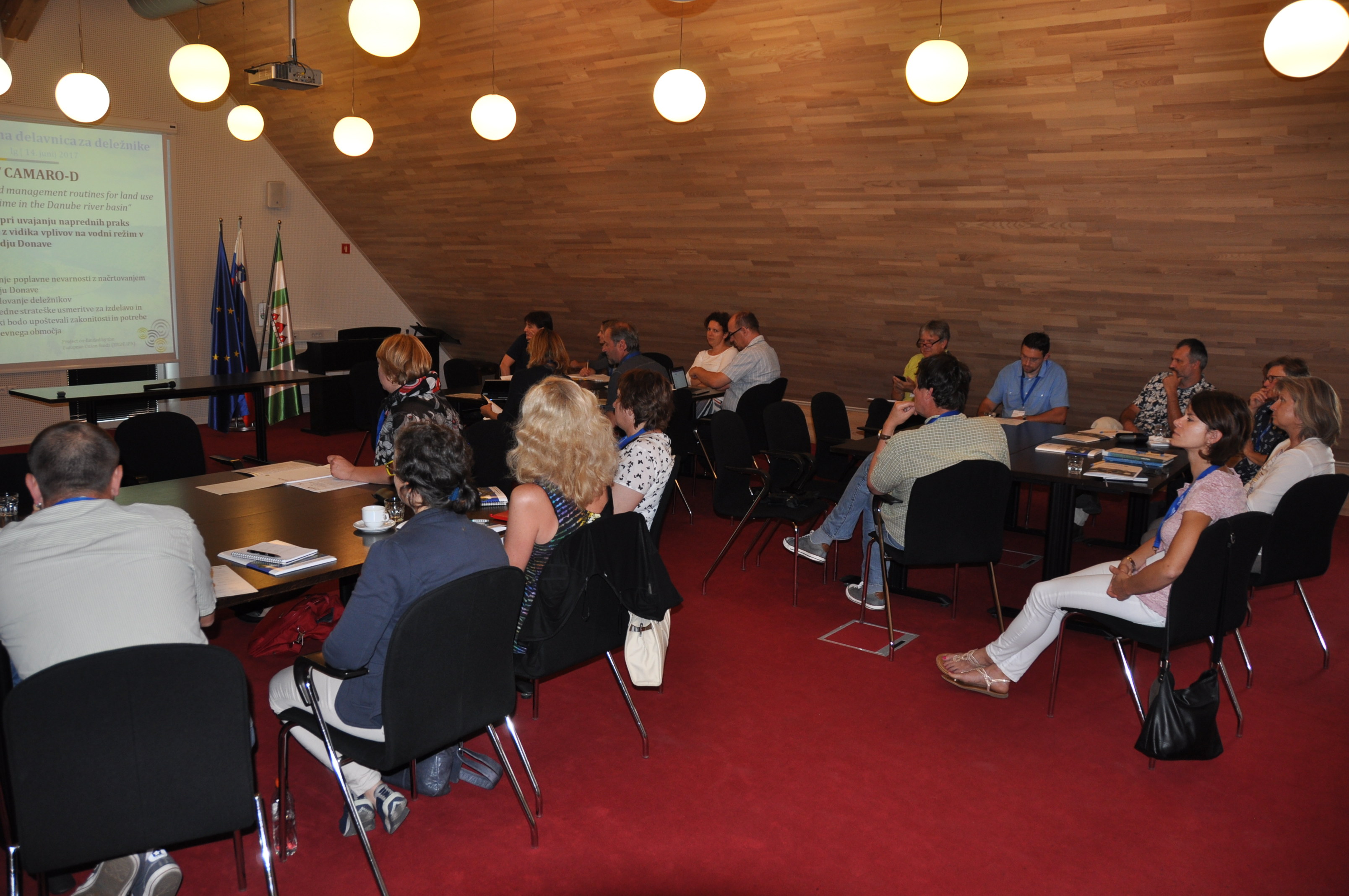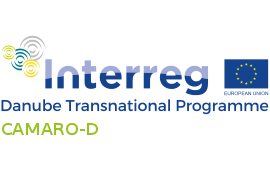|
|
| |
| |
 |
9 STAKEHOLDER-WORKSHOPS in 9 COUNTRIES
|
| |
| |
| |
|
Dear readers,
the CAMARO-D project consortium is proud to present its first output, namely the implementation of nine stakeholder-workshops in each country participating in the project. With the following newsletter 02 we would like to inform you about the workshops that were conducted. Their primary goal was to define current shortcomings in actual land use management practices and define “hot spots” in each partner-country. For any questions or comments, we are happy if you contact us via the project website.
The next transnational project meeting will take place in Belgrade, Serbia, between September 13th and 15th, 2017, tgether with the first pilot cluster coordination meeting outlining the main scope of the foreseen activities within the pilot areas.
During the months of May and June 2017, the partners organized 9 workshops consisting of presentations of the project and its first results as well as foreseen activities, group works with following discussion and partly followed by excursions to pilot areas. The follwowing picture gives an overview:

|
|
| |
 |
Workshop AUSTRIA, Irdning-Donnersbachtal
|
| |
 |
| |
|
33 participants representing public authorities on local, regional and national level as well as research institutions, water suppliers and nature protection responsible came together to get informed about the project CAMARO-D and its foreseen activities and objectives, and to discuss the current shortcomings respectively “hot spots” in Austrian land use practices and adequate solutions. This process was further deepened during an excursion nearby the venue in well selected sites illustrating the most important conflicts between different diverging claims on soil utilisation which clash within the narrow confines of the Alpine region.
Three main thematic issues were discussed in detail within separate working groups:
- Agriculture and erosion
- Forest and water
- Spatial planning and natural hazards
As one possible solution which could be fostered by the project a cooperation of municipalities, so called “planning regions” were suggested, in order to harmonize further land use and to realise spatial planning on river catchment level.
|
|
| |
 |
Workshop BULGARIA, Ochin dol village
|
| |
 |
| |
|
The representatives from different institutions, such as Danube River Basin Directorate, State Forest Enterprise Mezdra, Regional Forest Directorate Berkovitsa, Nature park Vrachanski Balkan, the mayors of the Ochin dol, Zli dol and Eliseina villages, local citizens, etc. participated in the meeting.The discussion with River Basin Directorate and EFA and its regional structures was initiated about joint activities and possible legislative initiatives in the sphere of water and forest protection and management.
The local institutions explained the importance of the previously realised erosion control afforestations in the area and discussed the need of support of the coniferous plantations, in view of the recent problem with the bark beatle in the region. During the meeting the “hot spots” in actual land use management practices were defined.
|
|
| |
 |
Workshop Croatia, Karlovac
|
| |
 |
| |
|
The workshop started with the introductory speech of PP10 (Croatian Geological Institute) presenting the project and its objectives. Interesting speeches were held by representatives of ASP Croatian Waters displaying the state of water resources management in the Republic of Croatia, the Faculty of Agriculture about land use management related to agricultural land, contamination of soil due to farms, inadequate application of pesticides and fertilizers on soil, etc. and a presentation was given on land use and flood protection.
An interactive discussion followed after the coffee break and was aimed at defining the major problems and creating new management goals. Valuable inputs were given by the stakeholders from the pilot action area who pointed out current problems of water management and land use.
|
|
| |
 |
Workshop Czech Republic, BRNO
|
| |
 |
| |
|
The workshop location was provided by the associated partner (Moravia river basin s. e.). The meeting was attended by a total of 40 participants. 3 national public authorities, 10 regional authorities, 1 local authority, 26 others (researches, water suppliers, spatial planners, foresters, farmers…). Stakeholders were asked to fill out a questionnaire as basis for the SWOT analysis. The results of the SWOT analysis and the results of the CAMARO-D project will be distributed to these stakeholders through their e-mail addresses and project web sites (PP11, CTU, in czech) - http://storm.fsv.cvut.cz/projekty/camaro-d.
The main outcomes of the roundtable discussion are:
- the surface water and groundwater quality in the Morava catchment has significantly improved in last two decades
- soil degradation and water shortage are the major environmental threats nowadays
- legislation (environmental standards) are not up-to date, the water treatment plants are able to clean water very effectively with current technology, but they often don’t comply with the standards.
|
|
| |
 |
Workshop Germany, Stegen-Eschbach
|
| |
 |
| |
|
The stakeholder workshop was subdivided into two parts in order to provide a sound knowledge base as well as on-site information. The first part (May 11th 2017) was meant to transfer knowledge about the impacts of forest management on water quality, flood risk and soil conservation. It included a presentation, questions and answers, and a final discussion.
The second part of the workshop (June 28th 2017) took place as a field trip in the “Conventwald” study area which was also introduced during the presentation. The discussions and questions that the participants asked concerned the amounts of nitrogen input through the rain which are different for open land, beech and spruce stands. Another topic was whether or not the intensive timber harvest during the medieval ages had any impacts visible today, and if there are implications for the future.
|
|
| |
 |
Workshop Hungary, Budapest
|
| |
 |
| |
|
The workshop provided a general picture about the project, more detailed information on already collected materials targeted within the project (gap analysis, best practices, policies, etc), and also on some specific themes, which could be useful for the further work like application of remote sensing for catchment delineation, land plot identification, land use planning, protection intervention planning or agro-forestry.
The second part of the workshop was a moderated but open discussion, where participants could express their views on the different topics. During this group conversation the participants got additional documents to be discussed or to be filled in: A list of additional topics or hot issues which should be taken on board during the project implementation as additional potential damaging factors of newly occurring best technologies. Also questionnaires were distributed to the participants to be filled in, as SWOT analysis questionnaire and the event qualification questionnaire.
|
|
| |
 |
Workshop Romania, Covasna
|
| |
 |
| |
|
The three Romanian project partners, National Forest Administration – ROMSILVA, in cooperation with the Environment Protection Agency Covasna and National Meteorological Administration of Romania organized and participated in this national meeting. After a welcoming message presented by Mr. Gheorghe Neagu, Director of Environmental Agency Covasna, the event was moderated by Ms. Luminita Balalau and Mr.Vica Petrisor, project experts. A delegate from the Romanian Ministry of Environment, Mr. Adrian Biris - Iovu also presented an welcoming to the stakeholders on behalf of the Minister and showed the direct interest that the ministerial team has in CAMARO-D project.
The presentations were followed by discussions regarding : Analysis of land use practices that may have a negative impact on water quality, flood prevention and soil conservation; - Analysis of best land use practices; - Analysis of existing instruments / strategies / legislation in water management, territorial planning and soil conservation in Romania;
|
|
| |
 |
Workshop Serbia, Belgrade
|
| |
 |
| |
|
About 50 water management and spatial planning specialists participated in the workshop that was chaired by Dejan Dimkić, water supply and climate change expert and Professor Dr Prvoslav Marjanović, environmental specialist, who will coordinate project activities towards development of transnational guidance for sustainable land use planning for the entire Danube region.
The workshop was divided in several sessions, during which the lecturers presented CAMARO-D project, project objectives and planned activities within selected Gruza and Grosnica pilot areas. Furthermore the current status of water quality in reservoirs across Serbia, challenges that reservoir operators are facing in everyday work, as well as different sets of measures for protection of reservoirs’ watersheds and improvement of water ecological status were presented. In order to identify gaps in current practices in water management, spatial planning and land use, questionnaires were distributed to the participants during the workshop.
|
|
| |
 |
Workshop Slovenia, Ig
|
| |
 |
| |
|
The first national stakeholder workshop for CAMARO-D project was held on 14th of June 2017 at conference hall of the Municipality of Ig, organized by the Slovenian national project team consisting of two project partners: PP3 – University of Ljubljana, represented by the Faculty of Civil and Geodetic Engineering and by the Faculty of Natural Sciences and Engineering and PP4 – Public Water Supply (JP Vodovod-Kanalizacija d.o.o.). The 22 workshop attendees were representatives of Slovene stakeholders, namely representatives of research and educational institutions, water management institutions, public water supply institutions, municipalities and governmental institutions.
After general presentations, three groups were organized on a rotation basis that focused on three topics:
- Impacts of land use in urban areas on groundwater and surface waters;
- Impacts of environmental management in agriculture and forestry on groundwater and surface waters;
- Municipal water infrastructure management in relation to groundwater and surface waters.
|
|
| |
 |
STATUS of PROJECT IMPLEMENTATION
|
| |
|
After the first half year of project implementation, the project consortium can look back on a successful project start. The kick-off-event in Budapest in March 2017 was followed by intensive work in the first content work-package “Investigative Danube”. The actual situation in management practices - often characterized by the existence of knowledge gaps or resistance against the application of new practices – is tackled by investigating current land-use practices, stakeholder needs and resulting challenges. A project folder is already available as online-version.
|
|
 |
|
pictures copyright: AREC Raumberg-Gumpenstein, Executive Forest Agency, Environmental Agency Covasna, Jaroslav Cerni Institute, FVA Freiburg, Croatian Geological Survey, University of Ljubljana
CAMARO-D website
|
|
|
|
|
| |
|
If you have received this newsletter, you have been included on one or more of the Danube Transnational Programme/projects postal mailing lists. We are committed to respect and protect the privacy of personal data collected. We regard your personal data as confidential information and will never communicate it to third parties. Your personal data are used mainly for the express purpose of receiving the newsletter. Your mailing details may also be used by the DTP and its projects for information and dissemination purposes strictly related to the programme and its projects. If you prefer not to receive more of this newsletter and your data not to be used for dissemination purposes, you can unsubscribe by sending a reply email.
|
|
|
|
|
|
